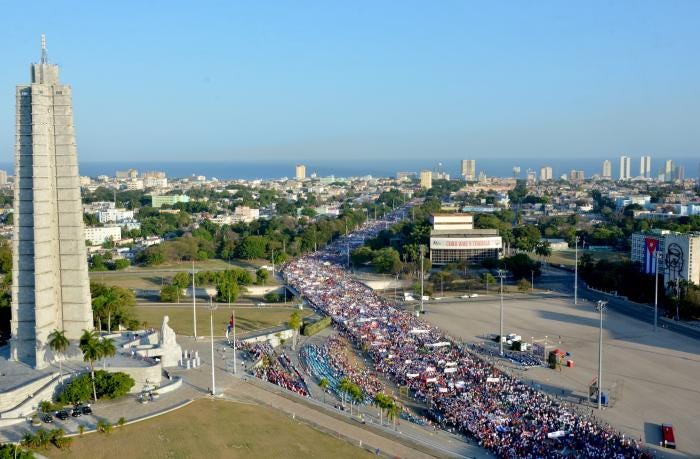The Cuban people march
In celebration of their revolution
Millions of Cubans took to the plazas, parks, and streets of the cities of Cuba to celebrate of International Workers’ Day, after two years of home and virtual celebrations. They marched in defense of the sovereignty and independence of the nation and the continuity of the socialist process chosen by the people. The Cuban daily newspaper Granma, the official organ of the Communist Party of Cuba, described it as a patriotic avalanche, sweeping away the fantasies of the enemies of the revolution.
In many countries, May 1 is a day of protest. But in Cuba, it is a festive day of celebration and contagious enthusiasm, with streets and plazas full of colors, Cubans flags, and happiness.


